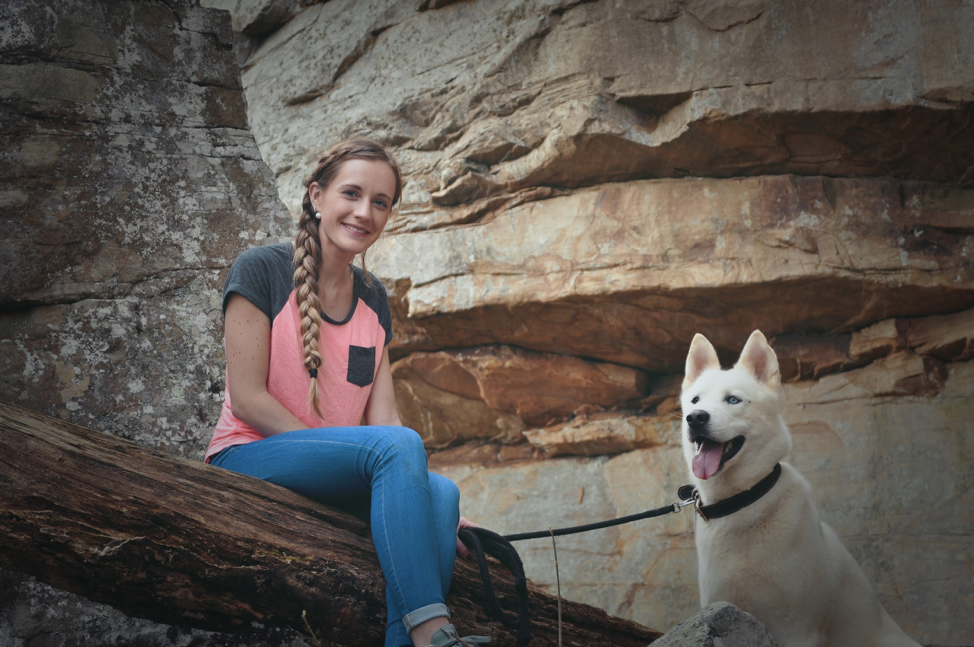I was born and raised most of my life in Norway, where I was early exposed to and educated about environmental issues and sustainability. It became a passion, as I understood the importance of conserving our earth and its resources. This laid the basis of my goal of pursuing a career in the field of green building design and sustainable development. I am a civil engineering student graduating from the University of Alabama at Birmingham in April 2019. Because of my interest in sustainability, I was given the opportunity to be a part of Team Alabama in the 2017 Solar Decathlon, where international and national university teams presented their student designed sustainable solar houses.
In September 2018, I started an internship at the Planning, Design, and Construction department at UAB Facilities, where I work solely with a focus on UAB’s Sustainability Strategic Plan. My main responsibility has been to participate in the development of a roadmap for carbon reduction. After it became evident to me that there is lack of knowledge and commitment to sustainability in Alabama, I became a part of GASP’s volunteer team to contribute in spreading awareness. For now, I will dig deeper into my experience at UAB.
The University of Alabama at Birmingham is an urban research university, and one of the largest academic medical centers in the country. It is the single largest employer in the state, and the university provides an annual economic impact of $7.15 billion [1]. In the fall of 2018, enrollment broke new records for the third consecutive year, reaching 21,923 students [1]. As a growing, and highly influential institution, it is becoming increasingly important to step forward as a leading example in a state that lags behind most other states with regard to sustainability.
The focus of sustainability lays in “meeting the needs of the present without compromising the ability of future generations to meet their own needs”. UAB’s sustainability program was established in 2013 and is lead by a team that proactively works to incorporate sustainability on campus. Five years after the program’s establishment, in the end of 2018, UAB publicized a Sustainability Strategic Plan, committing to a 2025 sustainability goal. The university is pursuing sustainability through incorporation of sustainable principles in operations, teaching, research, innovation, and community outreach. The strategic plan is divided into 13 focus categories, in which the overall aim is to reduce the university’s carbon footprint. By 2025, UAB, the largest electricity consumer in the state wants to see a 20% reduction in greenhouse gas emissions [2].
UAB Strategic Plan Objectives [2]
| Air, Climate, & Energy |
Establish a clean energy standard of 20 percent renewable energy sourcing by 2025 and cut greenhouse gas emissions, improve resiliency, and increase overall energy efficiency |
| Food & Dining | Support environmentally responsible dining operations, minimize food waste, and support local and sustainable food production |
| Water | Promote water conservation through efficient use and innovative management |
| Buildings | Design, construct, and maintain buildings in ways that provide a safe and healthy indoor environment for users while simultaneously mitigating the building’s impact on the outdoor environment |
| Transportation | Draft policies with five-year and ten-year benchmarks for sustainable transportation solutions that mitigate emissions, traffic congestion, and parking concerns |
| Grounds & Waste | Produce a comprehensive waste management plan in partnership with external stakeholders to reduce disposal of waste in local landfills and develop the university grounds for ecological stewardship |
| Curriculum | Integrate sustainability as a key concept where applicable so that UAB students have the opportunity to gain experience through coursework |
| Research | Support interdisciplinary research, scholarship, and creative activities related to sustainability and encourage sustainable research practices |
| Purchasing | Develop sustainable purchasing practices and protocols to exercise UAB’s purchasing power toward maximizing environmental stewardship, protecting human health, and supporting local and global sustainability |
| Campus Engagement | Effectively engage students, faculty, and staff in collaborative pursuit of UAB’s social, environmental, and economic sustainability goals by sharing information and inspiring active participation |
| Public Engagement | Provide sustainability education and programs for a broad regional, national, and international community |
| Diversity | Promote a more inclusive and equitable environment where faculty, staff, and students can thrive, and reinforce our commitment to working with local and diverse suppliers |
| Wellbeing & Work | Support the links between healthy and sustainable lifestyles and their impacts on work life |
The clock is ticking and in order to reach these goals by 2025, changes must occur now. Through my internship at the Planning, Design & Construction department at UAB, I have looked into the university’s carbon reduction potential by analyzing an energy study performed on 94 buildings. A carbon reduction roadmap will provide a business case for implementation of energy efficiency projects. It is achievable for the university to see significant greenhouse gas reduction by implementing a great number of energy savings projects. Although, there are several challenges hindering sustainable development, often related to lack of awareness of its importance.
Many Alabamians are not committed to making sustainability a priority. Unconsciously, most of us have a “it’s not-my-problem mentality”, making sustainable development a tough pull. This is why GASP plays an important role, because creating awareness and educating the public about sustainability is critical. People must understand that reaching sustainability goals does not only benefit the environment, but will also improve human health and the prognosis for the future.
References
[1] UAB – The University of Alabama at Birmingham. “Did You Know”.
[2] UAB – The University of Alabama at Birmingham. “Strategic Plan 2019-2025”.
Mia Murr is a volunteer for GASP and advocate for environmental protection and sustainability. To learn more about how you can volunteer with us, visit gaspgroup.org/volunteer.


